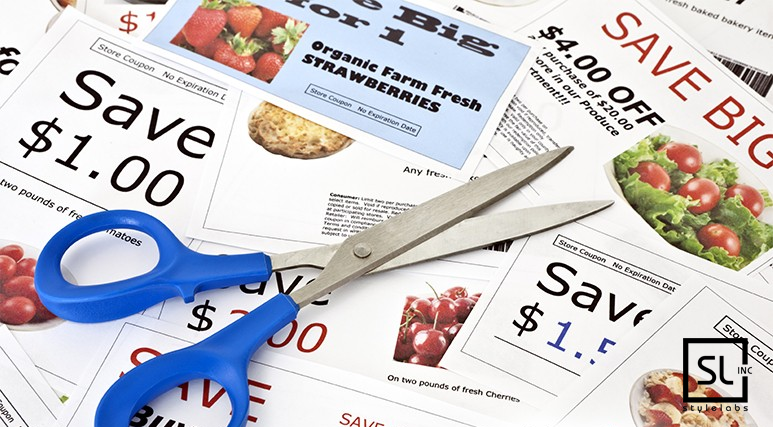The plummeting dollar has affected Canadians in many ways but one of the most noticeable is at the grocery store. Rising food costs have left many families struggling and it is becoming harder to make the grocery budget stretch far enough each month. This has resulted in a significant shift in consumer spending habits when it comes to purchasing foods. To help you stretch your money further, here are 7 tips you can use to save money on your next shopping trip.
- Shop around
Though most people tend to stick to the same grocery stores, it pays to shop around. Different stores have different sales cycles, so while you may be paying full price at your regular store, the item you need may be on sale at another. Though this approach does take more time it will save you money in the end. Don’t just stick with grocery stores either. Dollar stores are an excellent place to shop for non-food items like garbage bags, cleaning products and paper towels. - Plan your meals in advance
Check the sales and plan a week of meals in advance. By planning your meals around sale items you can take advantage of lower priced items. This strategy will also save you time since you won’t be running to the grocery store every night in order to buy the ingredients you need for dinner, potentially purchasing more expensive items because you are rushed. - Do prep work on the weekends
If you view cooking as more of a chore and not a pleasure, you may be tempted by fast food and prepackaged grocery store items. These more expensive options can add up quickly and won’t let your food budget stretch as far. Save yourself time and effort during the week by doing as much prep work as possible on the weekend. By pre chopping vegetables, creating a soup base or marinating and preparing meat in advance you save yourself time later and are less tempted to give in to quick, prepackaged options. - Buy only what you need
Make a grocery list in advance and stick to it. Stay out of the snack food isle and plan your route through the store so that you can get out of there as quickly as possible. If you don’t linger or go down aisles you don’t need to, you are less likely to be tempted by impulse buys. - Stock up when it is smart to do so
Non perishables such as rice, canned food and non-food grocery items like toilet paper will never spoil, so it pays to grab them when they are on sale. Check the flyers before you hit the grocery store so you can determine which items you should stock up on. By stocking up when items are at their lowest price, you save yourself money later. If you run out of toilet paper you are going to need to buy more as soon as possible, regardless of the price. However, it doesn’t pay to stock up on perishable items unless you know you will use them. If you allow the item to spoil you have wasted food and money. - Re-strategize your meals
Items like meat and fresh vegetables have drastically increased in price. Try new recipes that use less meat, or rely on less expensive sources of protein such as lentils and beans in order to meet your daily nutrition requirements. You can also try substituting fresh vegetables for canned or frozen ones. Though canned and frozen vegetables are viewed as inferior they may in fact be even more nutritious than fresh produce depending on how far away your fresh produce had to travel. This is because canned and frozen vegetables are processed immediately after harvest when they are at their nutritional peak therefore preserving them at their highest nutrient value. However, you still need to be a savvy shopper. Always check the nutritional information and be wary of added sugar and sodium. You also shouldn’t rule out no name brands. They are often the same product as their name brand counterparts, and they cost significantly less. - Do your research
Try and make meals that yield high batches and freeze well. Large batches can be portioned into individual meal sizes for and used for lunches and dinners. If the recipe freezes well you can cook one big batch and create several meals worth of food. This is especially helpful if your weekdays tend to be hectic since "making dinner" is now as simple as defrosting and reheating.
Looking for more insight into this and other important topics? Call us at 587-880-3358 or use our contact form below.







